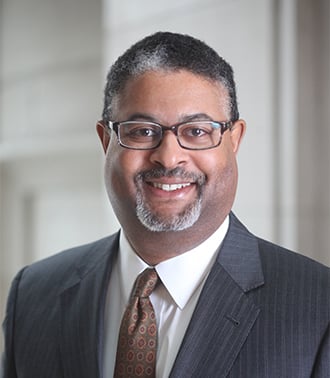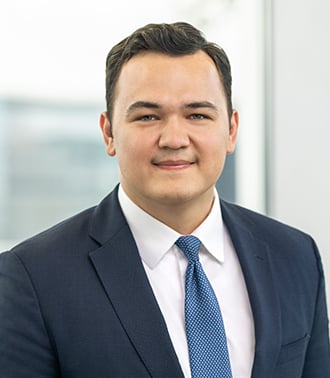The Second Circuit Rules Halkbank Lacks Sovereign Immunity From Criminal Prosecution Under the Common Law
On October 22, 2024, the U.S. Court of Appeals for the Second Circuit wrote yet another chapter in the Halkbank prosecution saga. The Second Circuit unanimously ruled that the state-owned Turkish bank does not have sovereign immunity from criminal prosecution under the common law for the commercial, non-governmental conduct charged in the indictment. The opinion is one of the most recent decisions dealing with the issues of sovereign immunity and deference to the executive branch under the common law and has implications for foreign government-owned companies with commercial activities in the United States.
Five years ago, the U.S. Department of Justice initiated a first-of-its-kind criminal prosecution of a foreign state-owned entity. The department charged Türkiye Halk Bankasi A.Ş. (commonly known as Halkbank), a commercial bank owned by the Republic of Türkiye, with conspiracy to launder oil proceeds and evade economic sanctions against Iran. Both the district court and the U.S. Court of Appeals for the Second Circuit held that, to the extent the presumption of foreign sovereign immunity granted by Foreign Sovereign Immunities Act (FSIA) applied in a criminal case, Halkbank lacked immunity under the act’s enumerated exceptions to immunity. Halkbank petitioned for certiorari, and as we previously reported, the U.S. Supreme Court affirmed in 2023. It held that the FSIA does not grant foreign sovereign immunity to foreign sovereigns in criminal cases. The Court then vacated and remanded for the “unenviable task” (as Justice Gorsuch put it in a separate opinion) of deciding whether Halkbank was immune under the common law of foreign sovereign immunity.
One year later, the Second Circuit has ruled that Halkbank lacks immunity from criminal prosecution under the common law for the commercial, non-governmental conduct charged in the indictment. The Second Circuit conducted its analysis in two steps. First, the Second Circuit explained that foreign sovereign immunity was long a matter of grace and comity under the common law and that it could be (and sometimes was) withdrawn by the executive branch. Here, the Second Circuit concluded, the executive branch had unambiguously signaled its desire to withdraw Halkbank’s immunity by prosecuting Halkbank for its alleged violation of numerous federal laws.
Second, the Second Circuit analyzed whether the executive branch’s position was entitled to deference in this particular case, an analysis that turned primarily on whether the executive branch’s position was consistent with the scope of sovereign immunity traditionally extended under the common law. At the threshold, the Second Circuit rejected Halkbank’s argument that deference was due to the executive branch only if the executive branch extended — rather than denied — foreign sovereign immunity, explaining that any such distinction would be inconsistent with governing precedent. The Second Circuit likewise rejected Halkbank’s threshold argument that deference was limited to executive branch immunity determinations in civil (rather than criminal) cases. The Second Circuit admitted that judicial deference to denials of immunity were not commonplace (especially in the criminal context), but noted that “this can be explained by the Executive Branch’s overwhelming tendency to request the application of foreign sovereign immunity.” For its part, Halkbank had not identified “a single case where common-law immunity was applied to a foreign state-owned entity facing federal criminal charges.”
The Second Circuit next considered the scope of foreign sovereign immunity under the common law. The Second Circuit noted up front that it was undisputed that the United States would not criminally prosecute a foreign state itself because doing so would be “in derogation of the common law.” But the Second Circuit held that the same rule of absolute immunity does not apply to entities owned and controlled by a foreign state, including state-owned corporations like Halkbank. Common-law immunity for such entities, the Second Circuit reasoned, turns on whether the activity in question was governmental or commercial in nature. State-owned corporations may accordingly be prosecuted for their commercial, non-governmental conduct consistent with the common law of foreign sovereign immunity.
The Second Circuit then applied that framework to the facts of the case. The “gravamen” of the indictment, the court explained, was Halkbank’s commercial activities in the United States: its “participation in money laundering and other fraudulent schemes designed to evade U.S. sanctions.” As such, the Second Circuit held that it was appropriate and consistent with the common-law immunity regime for the court to defer to the executive branch’s decision to withdraw immunity.
Crucially, the Second Circuit was careful to cabin the scope of its holding, leaving open for another day the question of whether courts would need to defer to the executive branch’s decision to prosecute a foreign government’s instrumentality for purely political or governmental, rather than commercial, acts. Since “the Executive Branch’s position here is consistent with the scope of immunity extended to foreign state-owned corporations at common law,” the Second Circuit ruled it “need not determine the outer limits of the deference afforded in this context.”
Finally, the Court rejected policy arguments advanced by Halkbank. Halkbank had argued that the U.S. government should not be able to wield the sword of criminal prosecution over foreign state-owned corporations when the U.S. government has tariffs, sanctions, export controls, and other diplomatic tools available to it. But the Second Circuit rejected the suggestion by noting that judicial second-guessing of the government’s foreign-policy decisions was incompatible with separation-of-powers principles. The Second Circuit also addressed the question of rogue state attorneys general freely indicting and prosecuting foreign governments and their instrumentalities. The Supreme Court previously held that there was no evidence of state prosecutors subjecting foreign states or their instrumentalities to criminal jurisdiction. And the Second Circuit further explained in a footnote that even if such prosecutions were to take place, the executive branch is free to grant immunity against such prosecutions and such immunity decisions would be entitled to judicial deference under the common law — even in cases like this one, where the gravamen of the indictment is commercial, non-governmental conduct.
The Second Circuit’s opinion is one of the first post-FSIA decisions to grapple with (in Justice Gorsuch’s words) the “thorny questions” of sovereign immunity and deference under the common law. It is yet to be seen how other courts will analyze these questions and whether the Supreme Court will ultimately address them itself. Halkbank has already indicated that it plans to seek further review of the Second Circuit’s decision. Either way, we’ll keep you posted. In the meantime, foreign state-owned companies — particularly banks and financial institutions — should be careful not to run afoul of U.S. sanctions and export control laws, as they will not enjoy immunity from criminal prosecution in the United States.
© Arnold & Porter Kaye Scholer LLP 2024 All Rights Reserved. This Advisory is intended to be a general summary of the law and does not constitute legal advice. You should consult with counsel to determine applicable legal requirements in a specific fact situation.






